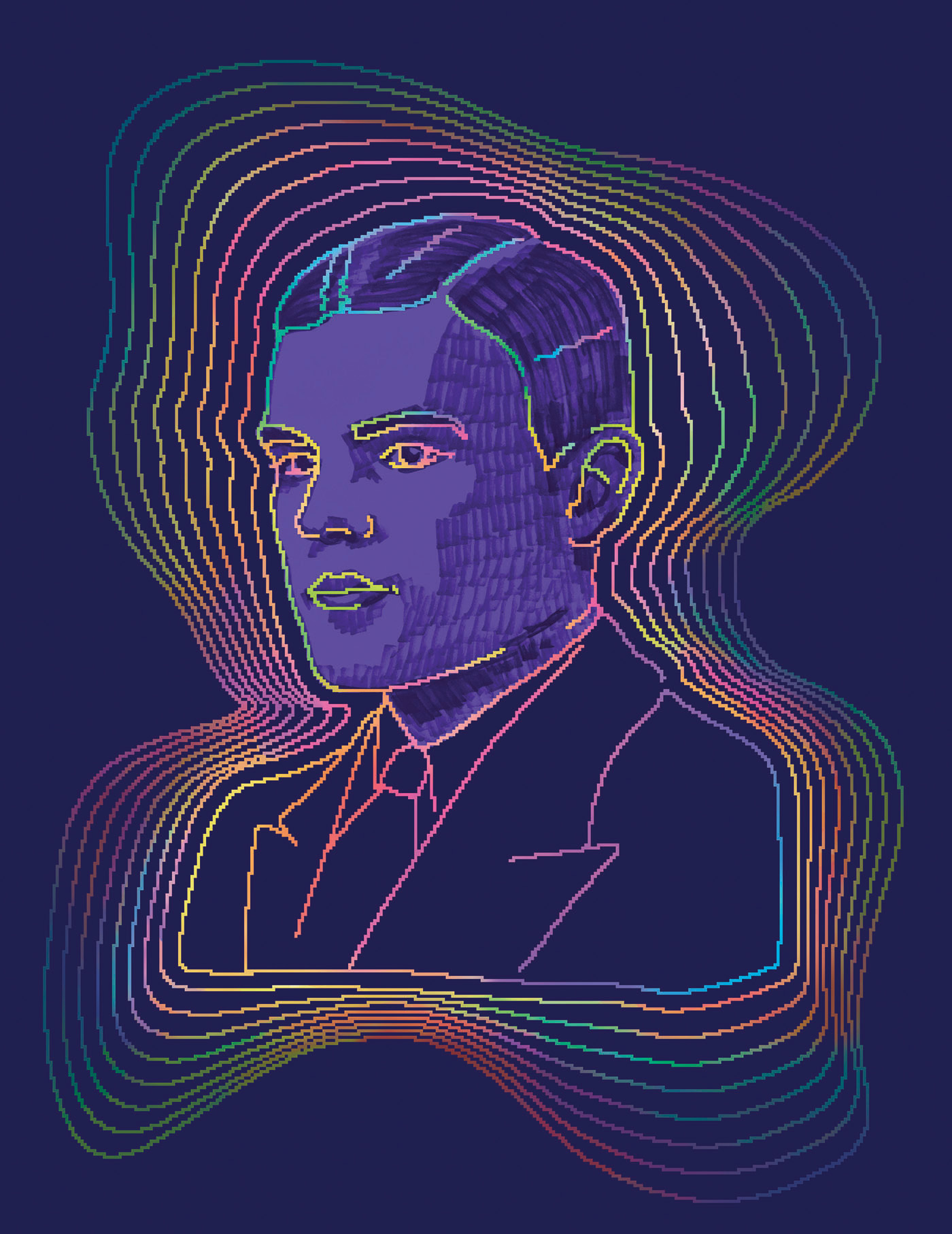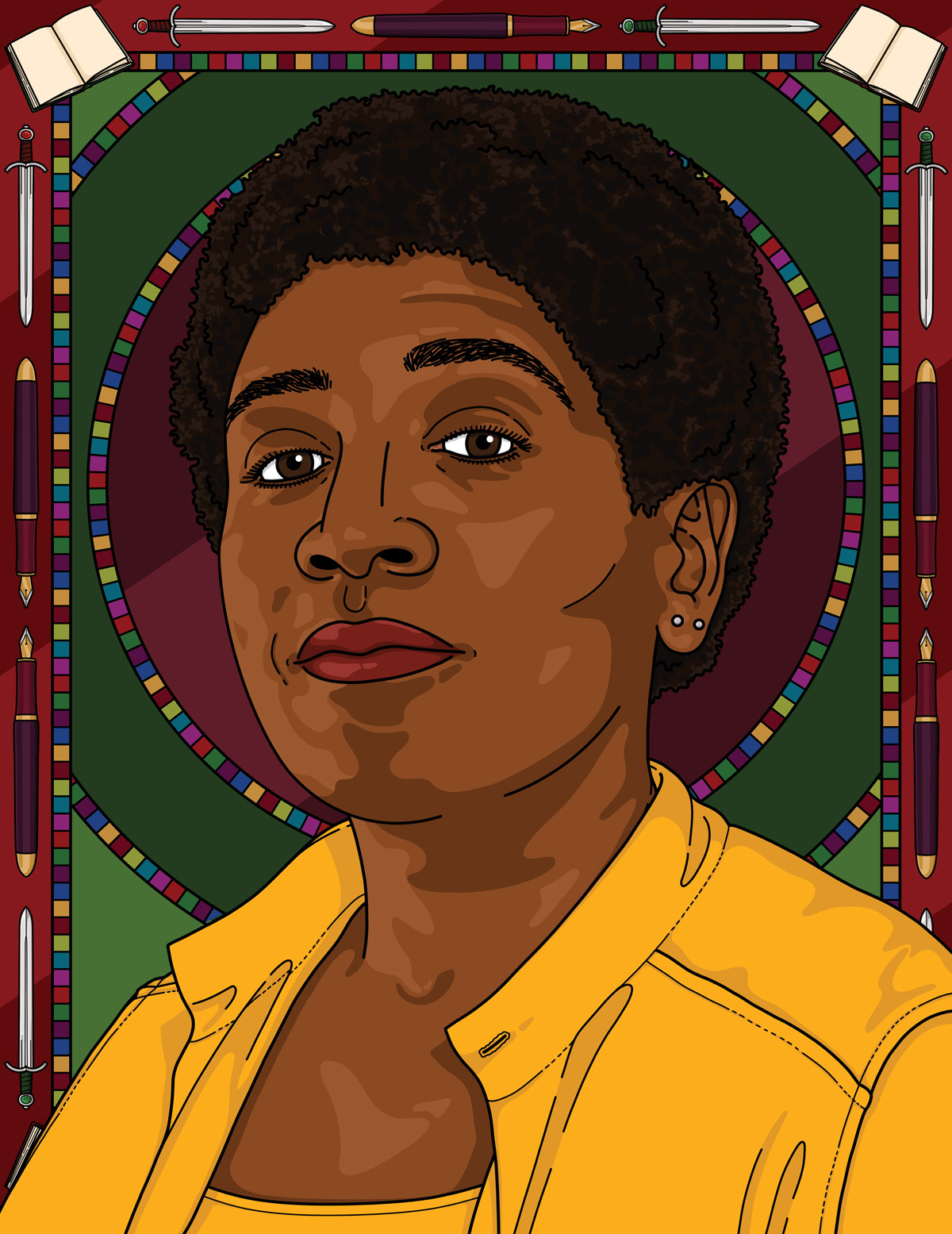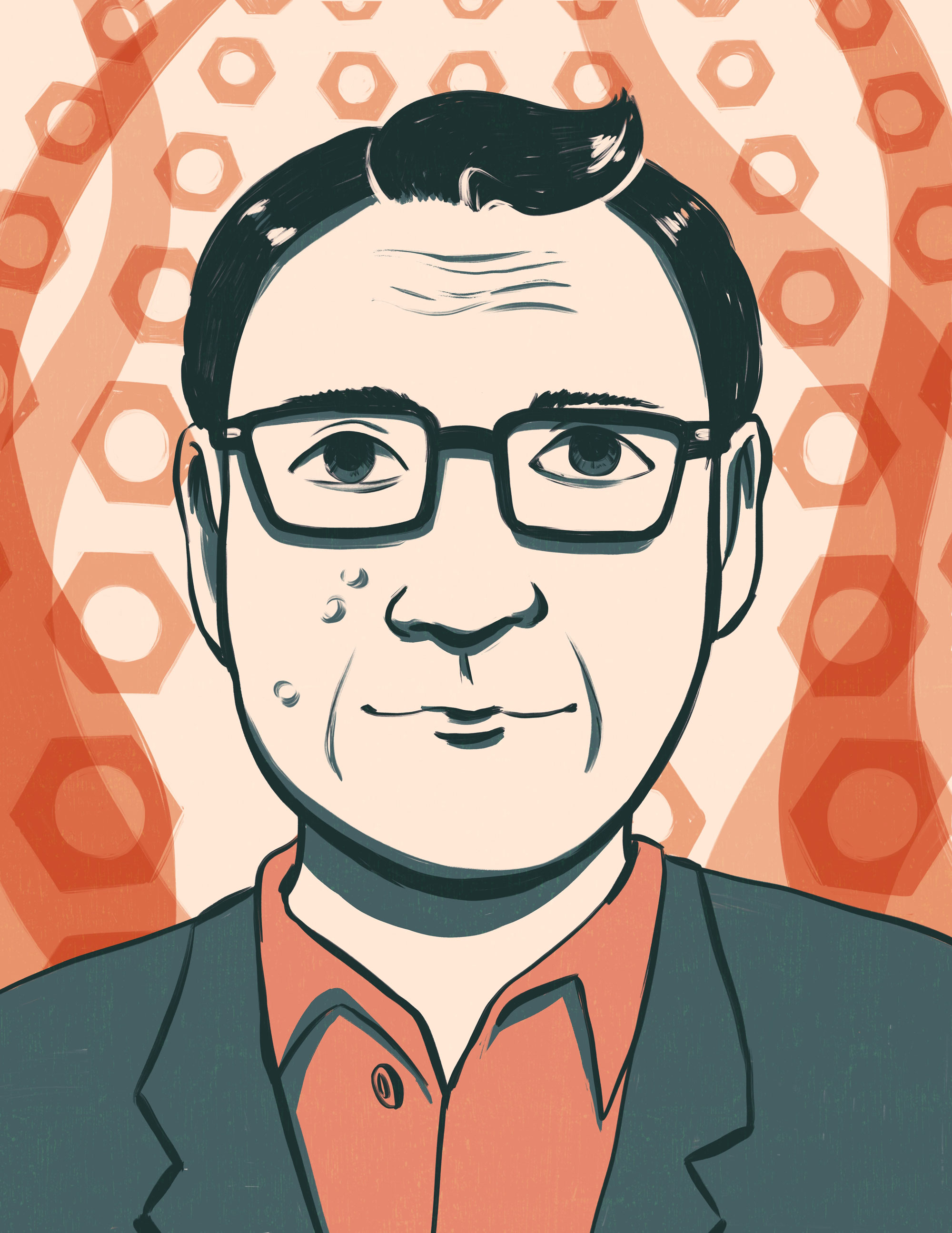
Alan Turing
Artwork By:
Elwyn Murray
Words By:
Brendan Geoghegan
Scroll Down


About

Alan Turing was a mathematician and logician, often seen as the father of computer science. While his inventions included the development of the ‘Turing Machine’, the basis for the first computer, and the ‘Imitation Game’ (also known as the ‘Turing Test’), which tested for artificial intelligence, his arguably most notable success was his work during the Second World War in which he helped decode intercepted messages from Nazi Germany. This work helped reduce the war by an estimated two years and saved upwards of 12 million lives.
Despite his prestige in the mathematics world, Turing fought with his sexuality in the face of an oppressive culture – during his lifetime, homosexuality was illegal and in 1952, when he was found guilty of homosexual acts, he was offered prison or aversion therapy. The latter came in two forms, electrical or chemical, and aimed to ‘cure’ men of being gay. He chose to receive one year of chemical aversion therapy, which made him violently ill and saw him grow breasts.
Despite his conviction, he remained positive and open about his sexuality to his friends. He would talk openly about the trial, and even travelled to Norway to investigate the gay rights movements picking up at the time.
However, internally, Turing struggled with his mental health, even admitting plans of suicide to a boyfriend years prior to his outing. He ultimately died by eating an apple laced with cyanide in the summer of 1954.
In 1966, the Turing Award was created in his honour, and is recognised as the ‘Nobel Prize for Computing’. In 2013, the Queen posthumously pardoned Turing for his conviction, and in 2016 the UK government announced intentions to pardon any man cautioned or convicted of similar acts – this is informally termed The Alan Turing Law. In 2021 Turing will be the new face of the fifty-pound note to honour his legacy.





.jpg)

